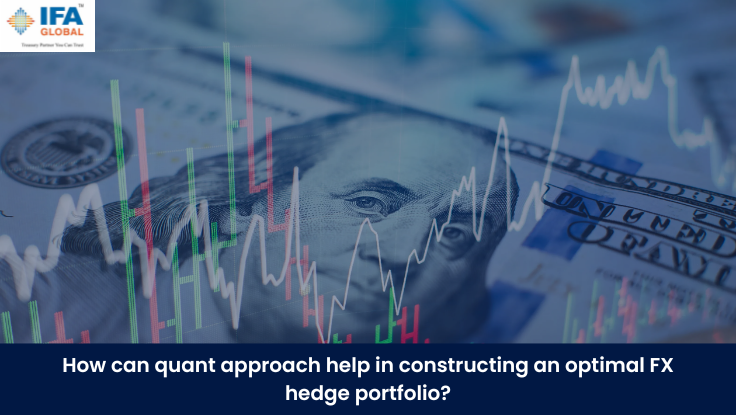5 Ways in Which I Believe You Can Get Along with Irrational Markets
16 June 2016 | By IFA Global | Category - Markets

16 June, 2016
Markets forever have been an interesting subject both for the ones who spend 20 hours glued on to the screen and also for those who have been scratching their heads understanding the rationale of its move. Zero and negative interest rates, Managed currencies, Currency wars, Carry trades and Flight to safety have made the markets extremely complicated and occupying over the last few decades. Nevertheless, some rules still apply.
(1) Folks! It’s A Game Of Perseverance – Stick To Your Gut!
‘You plan to fail if you fail to plan’. Markets, too, live by this adage and hence prove to be too punitive for those who believe that ‘even a shot in the dark can win’. One must always go ahead with a plan backing his actions based on one’s understanding of the price movements and fundamentals. One should have a clear Plan A and Plan B. And mind it! Having a plan is not all what one needs. What is also required is placing conviction in it and sticking to it. Like the way Paul Sameulson, the American economist puts it, “Investing should be like watching paint dry or watching grass grow. If you want excitement, go to Las Vegas ”
Well, this is not to say that one shouldn’t review his investment decisions from time to time, given the varying market environments. Reviewing your investment decisions is certainly required to ensure that these are aligned with your plan. But making revisions too frequently, based on the market noise and chatter, and thus undermining the very purpose of your plan does no good. Lot many people find common ways to support their arguments without understanding that whether the information on which they are basing these frequent changes is real or market noise. It’s common among currency dealers and traders in India to say that ‘RBI is buying and selling US dollars to rein the rupee movement against the USD.’ On asking them about the source of such information, they’ll either accredit the major market players , quote a news article for it or won’t be able to cite one. Did the RBI itself declare that it has been controlling the rupee movement against the USD? They have no clue. Similarly, taking decisions solely on the data doesn’t work, for many a times the data itself is fudged. Warren Buffett says it the best way, “You’re neither right nor wrong because other people agree with you. You’re right because your facts are right and your reasoning is right-and that’s the only thing that makes you right.”
(2) Find The Opportunity Before Opportunity Finds Someone Else Mega Opportunities don’t come every day.
You need to sit like a hawk and grab your prey the moment you locate one. Sit tight when your strategy or your plan is developing and once you see it materializing the way you had thought it, just go ahead, take a little extra risk and shoot. Spotting an opportunity, however, is possible only when you are an extra- ordinary observer and have spent a lot of time observing and studying the moves of the asset class you are dealing in. And certainly it cannot be an asset class other than the one in which you would have probably invested 10,000 hours of your life or 10 years watching. When I think about it, we have spent enormous time on currencies ,as an asset class, like the Indian Rupee , Euro , Pound and JPY. For when you spot an opportunity in asset classes you have a strong hold on, completely aware of its moves and history in your sub conscious mind, that’s when you are able to trust your gut, take the leap of faith, grab the opportunity and benefit out of it.
You remember ‘Black Wednesday’, which George Soros, the owner of the Quantum Hedge Fund, calls as ‘Awesome Wednesday’? Well, 16th September 1992 cannot be forgotten for that was the day when the British Pound broke and it was none other than Soros who was responsible for it. It was when George Soros came to know that the Sterling was mispriced i.e. overvalued and that it was only the British government’s assurance that was keeping it from falling against the Deutschmark. Owing to one of the features of the hedge funds, that of borrowing to short-sell, Soros was able to increase his short position against the British Pound from $1.5 billion to $10 billion. Seeing that, every other hedge fund followed suit and this brought about the selling wave in British Pound. No amount of effort from the British Government helped to keep Pound from falling. Soros made close to a billion dollars in those times and the event became synonymous with his name and his fund.
(3) Fear? What is Fear – As They Say In Baji Rao “It’s The Only Reason Of Failure”. Get Rid Of That!
It is often the fear of losing everything that kills entrepreneurship, creativity and experimentation. Even in markets, if you come leaving behind the thought of the so-called FEAR, you have already won 80% of the battle. I have seen hundreds of instances over the last few years where companies have been going exactly as per their plans and due to the sudden spurt of the notion, which you call as fear they lose patience – and lose a winning opportunity. We have started quoting this that FEAR is natural – I don’t think you read that anywhere, it’s probably your belief system. Especially this crops up majorly in the market bottoms or a losing business decision. As Mr. Ratan Tata says, take a decision and make it right . So always have a plan of risk management and do not over leverage so as to be saved from falling in the trap of fear.
(4) Do You Know The Stuff You Are Doing Or You Are Just Acting Fashionable And Following The Herd?
Herd mentality is a result of one of the most commonly observed behavioural biases in decision-making i.e. Regret Aversion Bias. One would not like to be left behind when others around are chasing potentially lucrative opportunities. One is therefore tempted to enter into the rate race without exercising one’s independent judgement, prudence and objectivity. Derivatives and Dot Com’s could possibly be the best example to cite this. Right from Mr. Buffett to some of the leading market veterans have been seen quoting this. Warren Buffett calls the derivative instruments as the “Weapons Of Mass Destruction”. The 2008 housing bubble earned the US financial services industry the label of a rogue industry. Misuse of the complex financial instruments like the Mortgage Backed Securities and Credit Default Swaps, sub-prime lending and activities like too much laxity of the regulations for one’s self-interest and the absence of criminal prosecution pulled off the financial crisis of 2008. The financiers never knew what they were up to and kept misusing the financial instruments for their own benefit. Similar was the case with the 2000 dotcom crash. With the rise of the usage of the internet in 1995, there was this new world that was seen coming. Things like information technology and networking started reverberating thereby sparking the investor frenzy across the globe. There was a deluge of IPOs of internet companies and investors blindly invested in these without even considering the business plan that these companies had. Result? Many of them reported huge losses and were compelled to shut down, leading to millions of dollars being lost by the market participants across the world. The exotic derivatives sold and entered into by profitable businesses across India in 2007-08 is also an example of a typical herd mentality. Some of them are still sold their profits to banks and institutions for the next 5-10 years. And now it is the start-up phase… People leaving their high paying, fundamentally strong jobs for young start-ups assuming that Mr. Jack Ma or The Softbanks of the world will take notice.
5. Accept And Adjust With The Fact That Black Swans Exist – And Its Getting More Brutal.
We are certainly living in a world where a single event can have a huge impact, given the increased interdependence amongst nations that makes each of them extremely vulnerable to such events. As Taleb says, “Problem lies in the fact that we don’t accept that such events can occur because we only concentrate on things we know and do not acknowledge the things that we don’t know. It’s like saying that since there is no evidence of a possibility of uncertain events in the past, hence these cannot occur. And that is where we fail.”
Asset classes have no rationale for their prices and their moves. Its more about sentiment, price wars and artificial government interventions like we could see in the moves of CHF and Japanese yen. (Recent moves in CHF made a lot of London-based brokers bankrupt overnight and turned out to be a blessing in disguise for all the Rolex owners. People soon forget the likes of 100 year institutions like Lehman and the new wave of banking crisis seen in recent German banks is ready to knock at your door. These days the markets are more liquidity driven than fundamentally driven. Abundance of liquidity ( as through QE) can inflate asset prices much beyond their valuations and dearth of liquidity or risk of liquidity being sucked out can push asset prices much lower than that justified by fundamentals. It’s when the irrational liquidity driven trade subsides that the fundamentals and valuations take over. This is when rational investors are vindicated and emerge victorious. As they say its only when the tide goes out that you discover who has been swimming naked! The movement of liquidity is the fastest today; seeking yields and carry with economic fundamentals and reserves positions changing overnight. Changing correlations have hurt investors more than the volatility. Being a trader, you cannot survive without embracing volatility. In fact, volatility is what creates opportunities. It’s when correlations change overnight that the investors are left flummoxed. (For example, the US Dollar against Asian currencies has a positive correlation with Dollar index in times of important US Data and a negative correlation in times when markets are driven by risk sentiment).
The top 1% today holds most of the wealth and hence asset prices being controlled by the privileged community has become the in thing. The duration of bull runs and bear runs has halved and the moves are brutal for any rational investments. It’s a phenomenon which is happening every 5 years now. One should therefore be buckled up for Black Swan events or be prepared to be fooled by randomness!
It’s not just about knowing the ways to get through the times when markets go irrational. It’s about how persistently you practice each of them.




